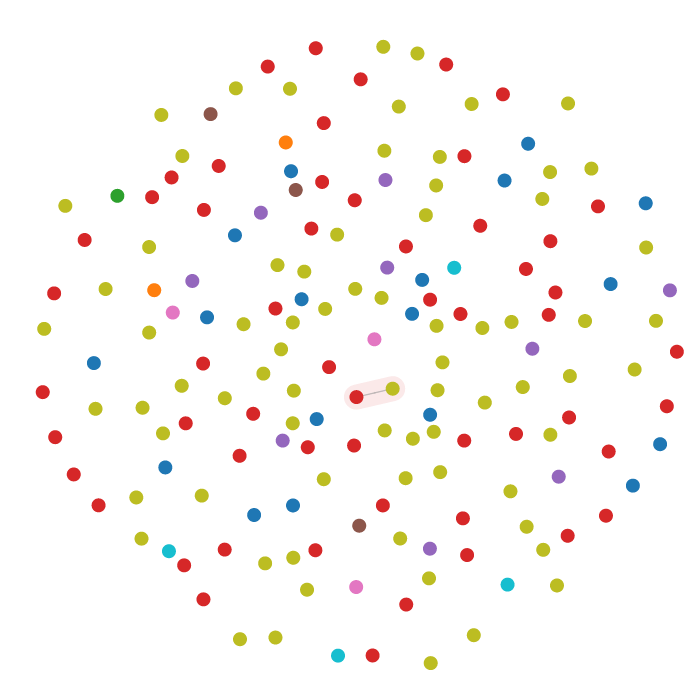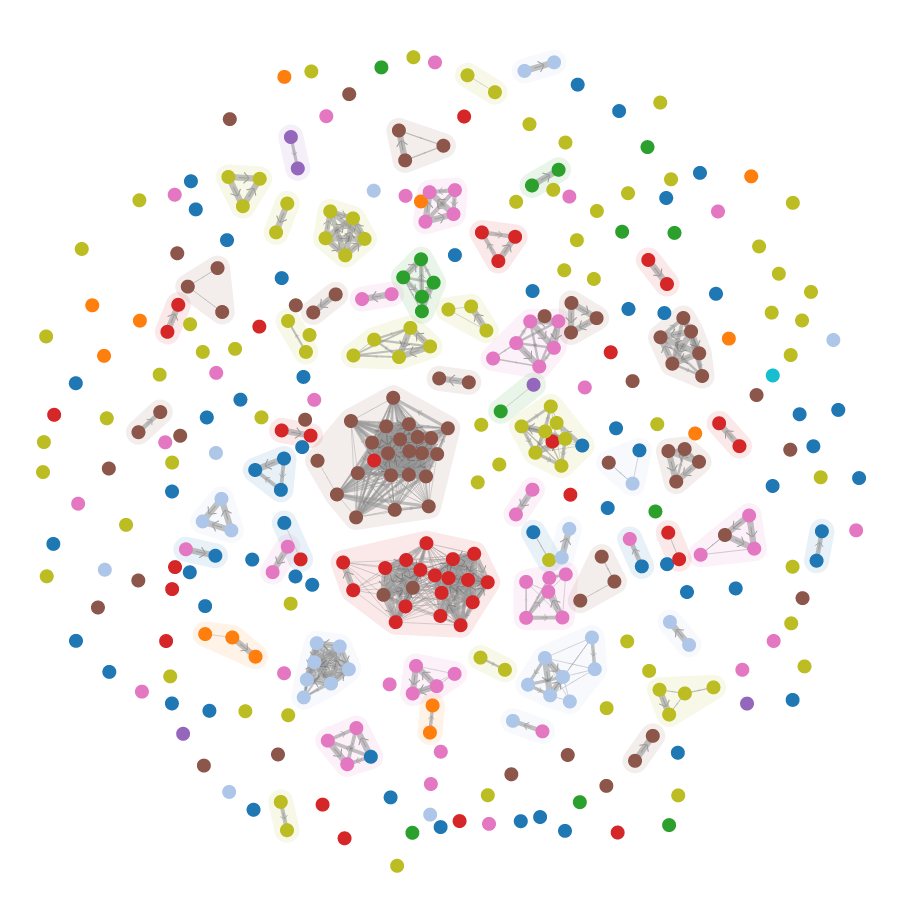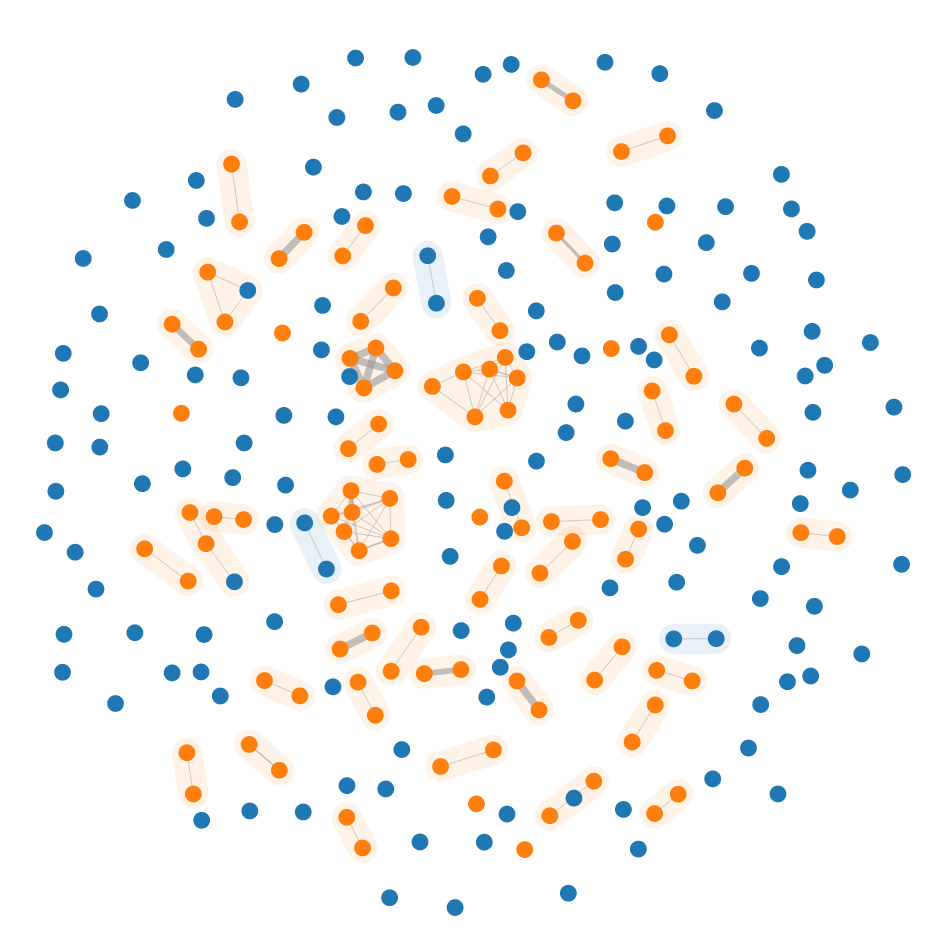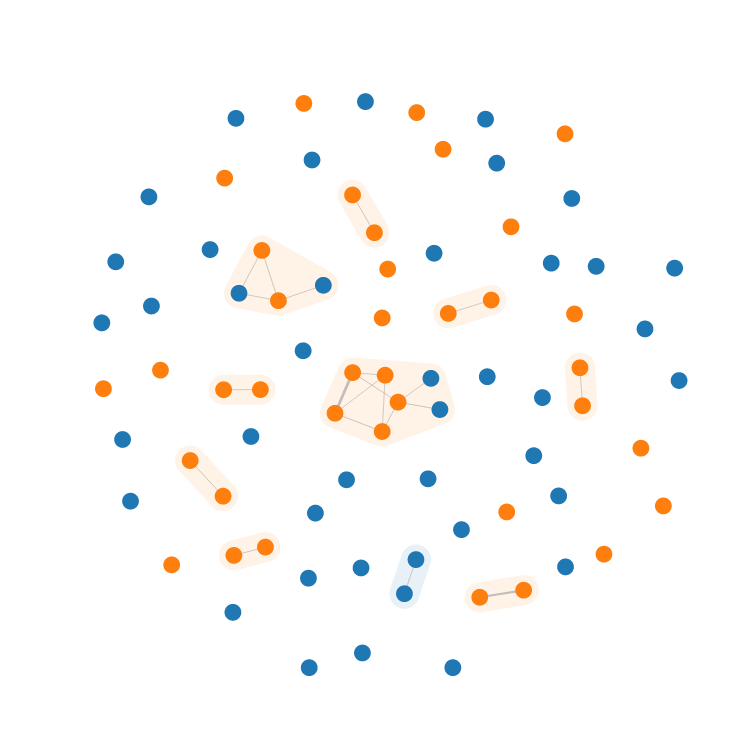Examples
On this page you can find the results of a plagiarism analysis for a few different cases.
Try on your own data!
If you want to run Dolos yourself, you can follow our quick start guide.
Classroom dataset
This analysis was performed on submissions for the same exercise: once as a graded test where no communication was allowed between students, and once as a mandatory exercise where collaboration is expected between small groups of students.
Test assignment
Analysis performed on all 169 submissions for a test assignment where no communication was allowed between students. All students submitted unique solutions during the test, except for two students who confessed they exchanged a solution during the test.
Mandatory assignment
Analysis performed on all 392 submissions for a mandatory assignment. Communication and collaboration is allowed. Students work either individually or in groups of two or three students, but we also observe some clusters of four or more students that exchanged solutions and submitted them with hardly any varying types and amounts of modifications.
Benchmark dataset
These reports shows how Dolos performs on the SOCO dataset. The inputs of Dolos were enhanced by adding labels indicating whether a file is involved in plagiarism (orange) or not (blue).
Note that these labels were added manually by experts, but they might not be fully accurate. Some submissions look very similar although they are not labeled as plagiarism.



